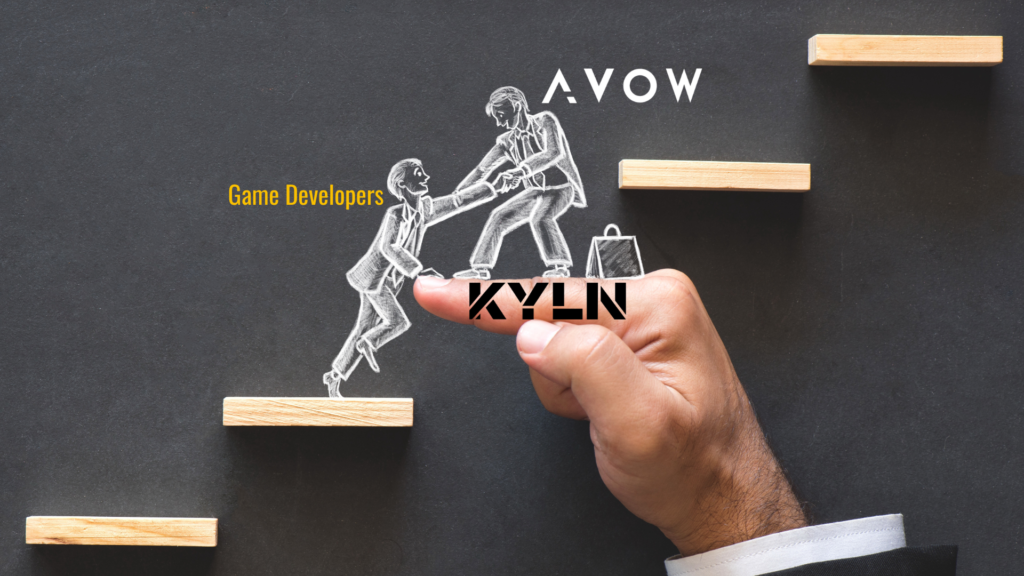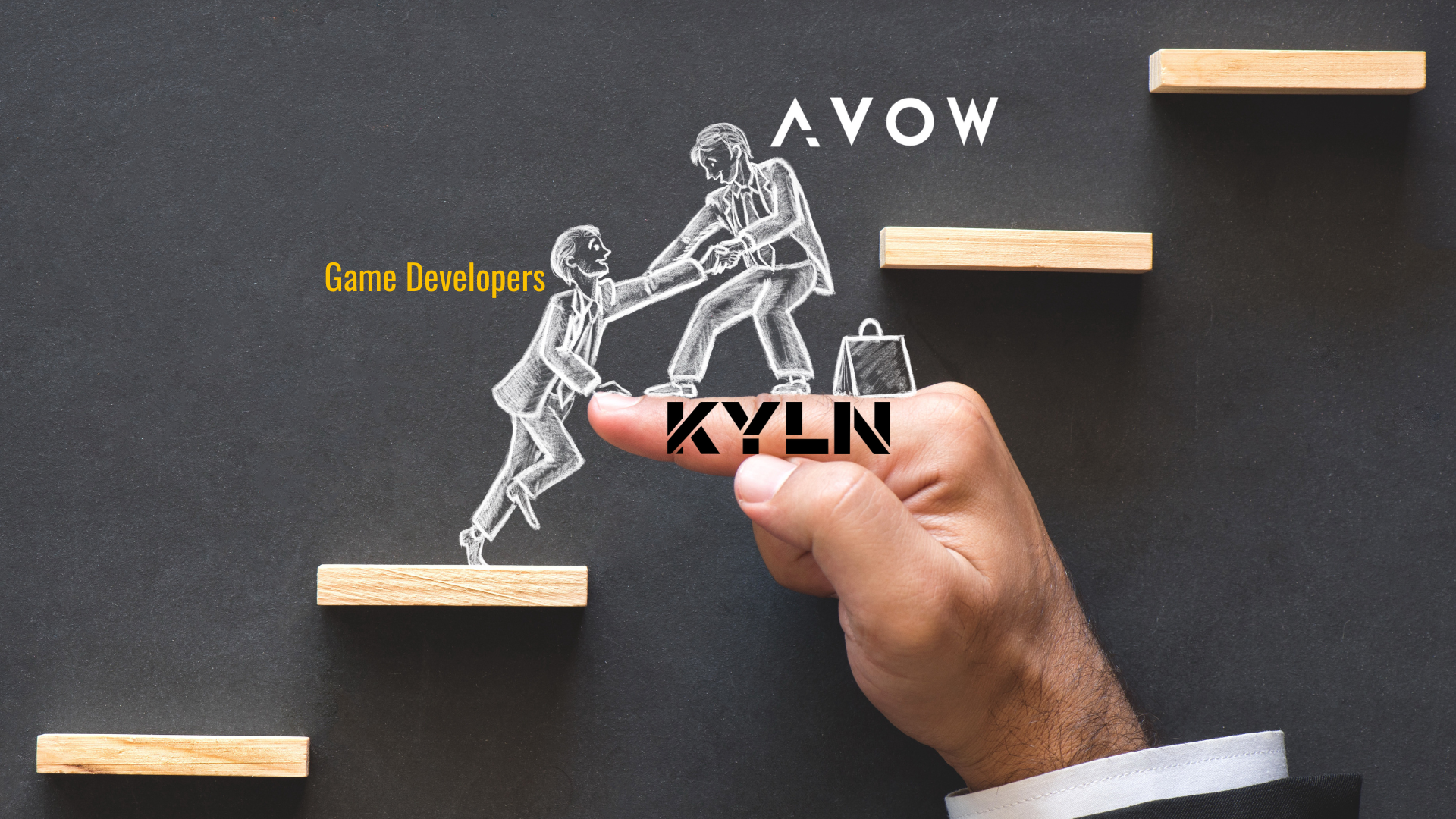 The mobile gaming industry is one of the most dynamic and competitive markets globally. With millions of apps vying for user attention, game developers face numerous challenges in ensuring their products reach the right audience and generate revenue. Now, more than ever, scaling profitably has become a key topic for many within the industry. Both the Google Play Store and the Apple App Store host a combined 4.4 million apps as of August 2024. These 2 app stores see over 2200 apps released daily, or over 88,000 apps per month. This distribution landscape, dominated by a few key players, adds further complexity to this process. However, alternative app stores and innovative platforms like KYLN are emerging as crucial allies for developers navigating these challenges.
The mobile gaming industry is one of the most dynamic and competitive markets globally. With millions of apps vying for user attention, game developers face numerous challenges in ensuring their products reach the right audience and generate revenue. Now, more than ever, scaling profitably has become a key topic for many within the industry. Both the Google Play Store and the Apple App Store host a combined 4.4 million apps as of August 2024. These 2 app stores see over 2200 apps released daily, or over 88,000 apps per month. This distribution landscape, dominated by a few key players, adds further complexity to this process. However, alternative app stores and innovative platforms like KYLN are emerging as crucial allies for developers navigating these challenges.
KYLN in a Nutshell
KYLN is a pioneering platform in the mobile gaming industry designed to simplify and enhance the distribution process for game developers. Emerging from a strategic partnership with AVOW, KYLN offers a comprehensive solution that combines seamless game distribution via mobile OEMs and other third-party alternative app stores with effective user acquisition strategies. The platform is tailored to help developers navigate the complexities of a fragmented market by providing easy access to alternative app stores from OEMs such as Huawei, Samsung, and Xiaomi, as well as other third-party alternative app stores, no-code integration, and transparent revenue models, all via an easy-to-use dashboard. By focusing on empowering developers, KYLN enables them to reach over 800 million users worldwide, scale their games in less crowded markets, and maximize their profitability. This allows developers to do what they do best—creating engaging, innovative games—while the platform simplifies the complexities of distribution.
Challenges Faced by Game Developers
Crowded Marketplaces
As demonstrated above, the most immediate challenge for mobile game developers is the sheer volume of competition on platforms like Apple’s App Store and Google Play. These dominant marketplaces are saturated with millions of apps, making it increasingly difficult for new games to stand out. Even high-quality games often struggle to gain visibility without significant marketing spend. This saturation and need to stand out is even more evident when we look at mobile ad spend in 2023. Globally, US$362 billion was spent on mobile advertising. That is more than the economies of countries like Finland and New Zealand.Revenue sharing is another major issue. Traditional app stores typically take up to 30% of developers’ earnings, a substantial cut that can severely impact profitability. For smaller studios or independent developers, this revenue share can be crippling, leaving them with little to reinvest in further development or marketing. With US$171 billion spent in app stores last year, developers are looking for a larger slice of that pie.
Technical and Integration Hurdles
Developers also face technical challenges when integrating their games with various platforms. Each distribution channel often requires specific Software Development Kits (SDKs) and compliance with unique technical requirements, which can be both time-consuming and resource-intensive. This complexity is further compounded when developers aim to distribute their games across multiple platforms, each with their own standards and expectations.The Importance of Alternative App Stores
While iOS and Google Play are dominant in many regions, alternative app stores are critically important in others. For instance, in markets like China, India, and Southeast Asia, alternative app stores often command a significant share of the market. Ignoring these platforms can mean missing out on a substantial audience, especially in rapidly growing mobile-first economies. These alternative stores are not just a way to bypass the dominant platforms but are essential for reaching new, often less saturated, audiences. Developers who leverage these stores can tap into large, engaged user bases that are not fatigued by the competition. This is particularly valuable in emerging markets, where smartphone penetration is growing, and local app stores often provide better visibility and engagement opportunities than the global giants. Michael Hudson, CEO of KYLN, believes that alternative app stores are important for the present and future of mobile game distribution, as he stated in episode 3 of our Behind the Apps interview series:“I think a lot of people don’t realize there’s 60% plus of the mobile user base is using alternative app stores, at least in some capacity, which is a huge segment of the market. … There’s a huge user base out there that allows developers to scale their games in less crowded markets. There’s a huge opportunity and chance [not just] for smaller developers, but even the bigger players as well, to stand out and really own and dominate a particular market segment upon stores right now, at this moment in time. Some of these stores are global, of course, such as Samsung, Xiaomi, etc. They do operate globally. But there are many others that work either regionally or even in specific markets. And this allows you to open up and be more specific with your user acquisition and really grow within markets where you might tend to struggle on the Apple App Store or the Google Play Store as well. So YES! I think distribution opens up more opportunities for all.”
The KYLN Solution
Simplifying Distribution with No-Code Integration
KYLN addresses many of the distribution challenges developers face by offering a no-code integration solution. This approach allows developers to distribute their games across multiple platforms without the need for extensive technical knowledge or additional coding. By removing these barriers, KYLN makes it easier for developers to manage their games on multiple platforms, reducing the time and resources spent on distribution.Centralized Platform Management
Another key feature of KYLN’s offering is its centralized platform management. Developers can oversee all their distribution channels from a single interface, streamlining the process and reducing the administrative burden. This centralized approach not only saves time but also helps developers maintain consistency across different platforms, ensuring a smoother user experience.Transparent and Flexible Revenue Models
KYLN is also committed to providing transparent and flexible revenue models. Because of this, developers can fully understand their revenue and store fees and leverage their stronger position to negotiate much more favorable terms for themselves. This transparency is crucial for developers looking to maximize their profits and reinvest in their projects, and KYLN is focused on ensuring that developers have the power and tools they need to scale.
Looking to the Future: Challenges
Integration and Scaling Challenges
Despite these advancements, the mobile gaming industry continues to present new challenges, particularly around integration and scaling. As new platforms and technologies emerge, developers must adapt quickly to maintain their competitive edge. KYLN recognizes these ongoing challenges and is focused on continually innovating its solutions to help developers stay ahead.Adapting to Industry Trends
The mobile gaming landscape is constantly evolving, with trends such as cloud gaming, new monetization models, and shifting consumer behaviors shaping the future. KYLN’s ability to adapt to these changes will be crucial in supporting developers as they navigate the complexities of an ever-changing market.Focusing on Growth and Innovation
Looking ahead, KYLN is committed to supporting developers not only in distributing their games but also in scaling their businesses. This includes providing advanced tools for user acquisition, monetization, and market insights, all essential for long-term success in the mobile gaming industry. KYLN’s future focus with AVOW will be on continually innovating to meet the needs of developers as the industry evolves, ensuring they have the resources and support necessary to thrive. While the challenges of mobile game distribution are significant, platforms like KYLN, combined with the strategic use of alternative app stores and mobile OEM advertising, offer potent solutions. By simplifying distribution, providing transparency, and focusing on developer empowerment, KYLN is helping to reshape the mobile gaming landscape, making it more accessible and profitable for developers of all sizes. Contact KYLN today to start distributing your game, or contact AVOW to explore how mobile OEM advertising can meet your user acquisition needs.
About the Author

Hems Selva blends product insight with marketing strategy as Marketing Manager at AVOW. On the blog, and through AVOW’s guides and playbooks, he shows how brands can unlock app growth and reach untapped audiences through smarter user acquisition.





